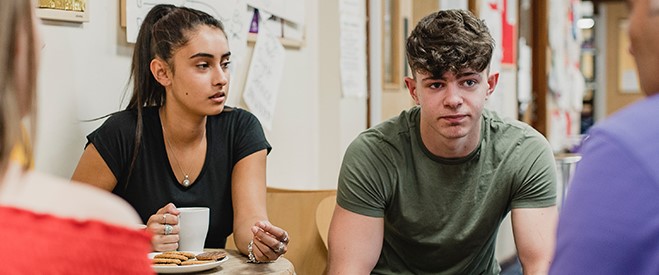Educational psychology – parents and carers
Educational Psychologists (EPs) are professional psychologists with specialist training in child development, how children learn, their emotions, behaviour and how environments affect learning. They work closely with parents and carers, Early Years settings, schools and colleges to help children and young people aged from 0-25 who might be having difficulties with the concepts in the icons below. Click the icons for more information.
Learning
Children/young people (CYP) can have difficulties progressing across the curriculum due to a combination of factors. In partnership with key staff and parents/carers, the EP would take a holistic view to consider all of those factors, alongside the CYP’s response to well-founded interventions and targeted support. More specific learning skills considered might include reading, writing and spelling fluency, retention and recall of teaching (memory skills), problem-solving skills (reasoning), organisation, attention and ability to transfer learning from one area to another e.g applying rote learnt timetables to solving number problems. See Guide to EP Casework.
Managing emotions
EPs are interested in the connection between a young person’s thoughts, feelings and behaviours. They can apply psychological models and tools to collaboratively explore and plan attuned support with key adults and the children/young people (CYP) themselves. When EPs discuss emotional states with CYP, they might define them as feeling sad, angry, scared, worried, surprised, calm, happy, confused, angry or bored. In this area the EP would consider how a young person is supported to express and manage their feelings before they become overwhelmed at school/college.
Confidence and motivation
In this area EPs are curious about how a child/young person perceives their strengths, what they feel they can do and how they are respected by others as unique individuals. EPs might explore how a young person experiences and attributes success in their lives, the level of independence they have over their learning in order to feel self-satisfaction and their sense of belonging to their peers and others.
Communication and friendships
When thinking about communication skills, EPs will consider a child/young person’s (CYP) expressive (spoken) and receptive (understanding) language skills alongside their social communication skills, such as gaining attention from others, understanding non-verbal cues, active listening and engagement in a reciprocal conversation. Maintaining authentic friendships can be a very important part of school and college life, so EPs may be curious about a CYP’s ability to negotiate, compromise, empathise, show patience and resolve disagreements.
All Southampton schools and colleges are linked to an EP (or a supervised trainee EP). Parents or carers should contact the Special Educational Needs Co-ordinator (SENCo) at their child’s school or college to raise concerns. EPs may also be available for negotiated work commissioned from Early Years settings or from an alternative provision.
All EPs must be registered with the Health and Care Professions Council.


How it works
1 Step one – Request SHOW
2 Step two – Psychological consultation SHOW
3 Step three – Action planning SHOW
4 Step four – Review meeting SHOW
EPs are also employed to deliver a statutory role on behalf of the Local Authority (LA), as outlined in The Children and Families Act, 2014. This happens when the LA considers that a child/young person (aged 0 to 25) may have Special Educational Needs or disabilities which require a level of support that is beyond what a typical mainstream educational setting can provide and/or for those who attend special schools, specialist colleges or an alternative provision.
If an Education, Health and Care (EHC) needs assessment has been agreed for your child, the EP will conduct an assessment in collaboration with you, key staff and other professionals involved. If appropriate, the EP will work directly with your child and will be keen to gain a clear sense of their views, wishes, strengths and needs. The EP will provide their psychological advice to the LA and to you in a written report. The EP Psychological Advice is one of a number of reports that are provided by professionals as part of the EHC needs assessment process.
More information on Education, Health and Care Plans (EHCPs)
More resources
For more information, see EBSA Information for Families, or view the other Education and school services.
Contact us
All EP work is commissioned and negotiated with Southampton link schools and colleges, so if you are seeking involvement from an EP, please discuss this with the SENCo or Head teacher at your child’s school/college. For all other enquiries, please complete our form to submit an Educational Psychology enquiry.
Before you make an Educational Psychology enquiry
You won't be able to save this form to complete later, so please allow yourself a couple of minutes to fill in the form.





